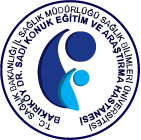ABSTRACT
Objective:
In this study, the effects of calcium channel blockers, verapamil and diltiazem, were compared in preventing reflex cardiovascular effects caused by laryngoscopy and tracheal intubation.
Material and Methods:
Sixty patients were randomly divided into three groups: 1. group 0.1 mg kg verapamil, second group 0.3 mg kg diltiazem, third group 2 cc saline intravenous bolus. In terms of haemodynamic follow-up, changes in MAP, RPP and HR were evaluated in time.
Results:
Significant increases were observed in all three groups of patients in the HR until 4 minutes after intubation. No significant difference was observed between the 3 groups in terms of heart rhythm. Significant increases in MAP and RPP values after intubation were significantly inhibited in the verapamil and diltiazem groups. There was no significant difference in MAP and RPP values between verapamil and diltiazem groups.
Conclusions:
Verapamil and diltiazem did not significantly affect HR. Both drugs were determined to be effective in preventing increase of the mean arterial pressure and RPP, but there was no significant difference between them. Therefore, it is concluded that both drugs may be used to prevent hypertensive episodes, especially in patients with ischemic hypertensive patients, patients with increased intracranial pressure disease, and other conditions in which hemodynamic effects are not desired in response to intubation.



